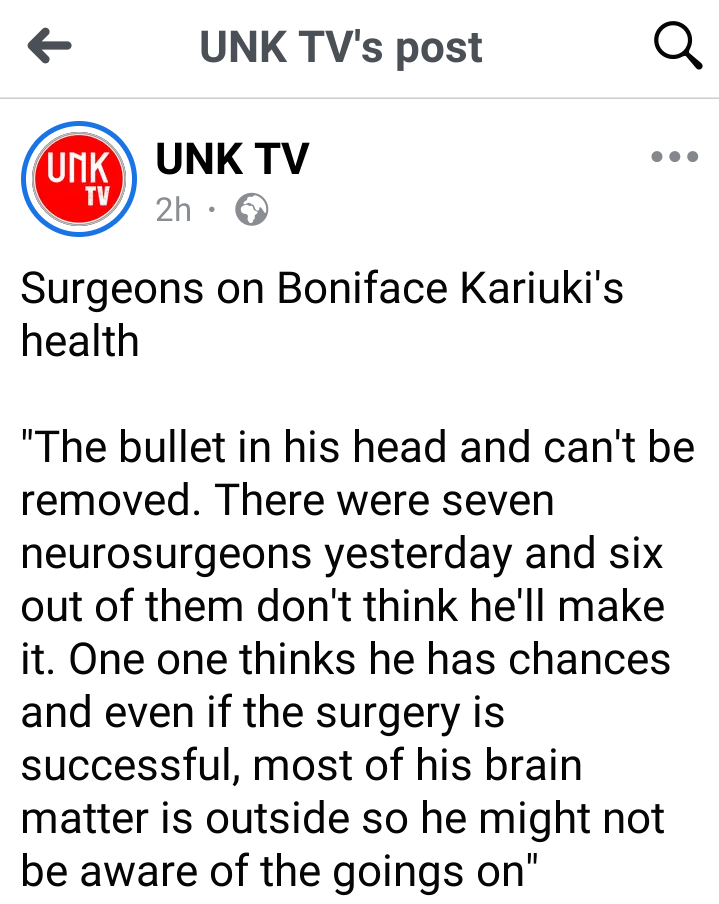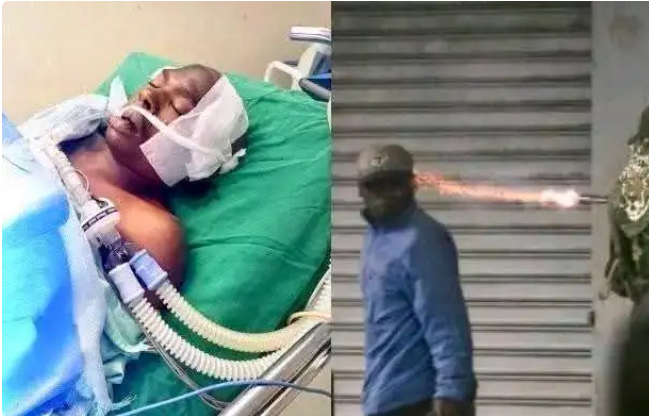Boniface Kairuki, a Kenyan mask vendor, is now fighting for his life after being shot in the head by police during a protest. The peaceful demonstration turned tragic when officers opened fire, and Boniface, who was unarmed and trying to earn a living, was struck.
Doctors attending to him confirmed that the bullet is still lodged in his skull and cannot be safely removed. Top neurosurgeons have explained that taking out the bullet would require removing a large part of his brain, which would make survival impossible.
This means Boniface must now live with the bullet inside his head, facing severe pain and health risks every day.
His family is devastated and overwhelmed. They are struggling to raise money for his treatment while also trying to find answers about why he was targeted.
As they sit by his hospital bed, they are demanding justice, hoping someone will be held responsible. Human rights groups have strongly condemned the incident.
They say this is not an isolated case, and they want full accountability and deep reforms within the police service. Many believe that without real changes, the violence will continue and more innocent lives will be destroyed.
The shooting has reignited widespread public anger about how police handle protests. People are especially upset because Boniface, like many others, was simply trying to survive in a tough economy. He was not a criminal or a threat.

He sold masks in the street to support himself. Now, his life has changed forever. He suffers constant pain, and doctors have warned that living with a bullet in the brain puts him at risk of seizures, memory loss, and other serious problems.
His future remains uncertain, and the chances of full recovery are very low.Across the country, survivors of police shootings are now sharing their own experiences on social media, calling for an end to police impunity.
Hashtags like #JusticeForBoniface have become common online, as more Kenyans demand action and justice.
Activists are stepping up, planning protests and legal action to push for compensation for Boniface and better checks on police behavior. Some groups have called for the officers involved to be suspended and prosecuted without delay.
The Independent Policing Oversight Authority has announced an investigation, but people are skeptical. Many say IPOA has a poor record of delivering justice and usually acts too slowly.
Boniface’s case is not just about him. It shows the dangers ordinary people face when protesting or even walking in the wrong place at the wrong time. His story has touched many, and as it spreads, more people are asking how long such brutality will continue.
Will the government take real action this time, or will Boniface just be another forgotten victim in Kenya’s long list of police abuse cases?





















Add Comment